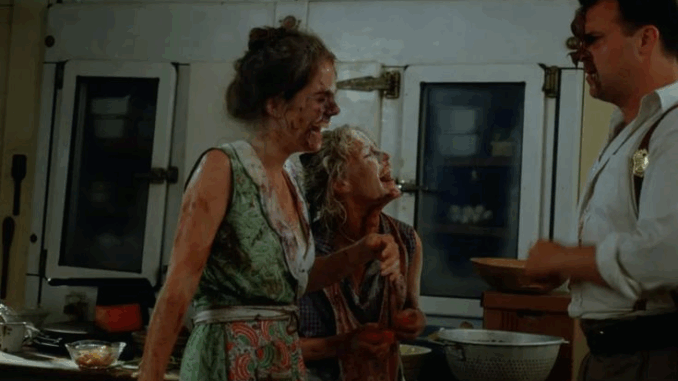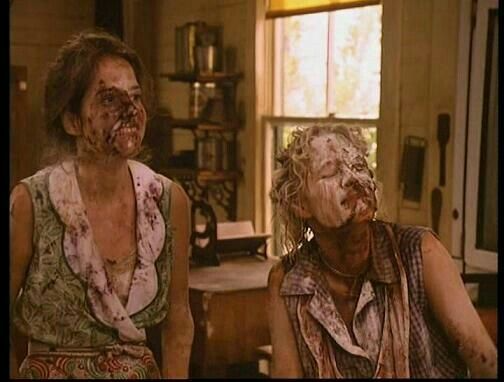
In the world of Fried Green Tomatoes, many characters leave a mark through bold defiance or overt action. But Sipsey, played with grace and strength by Cicely Tyson, offers a different kind of power — one that’s quiet, maternal, and deeply rooted in survival and community care.
Though often in the background, Sipsey’s presence is foundational to the soul of Whistle Stop. She is a woman who moves through the margins of a segregated world with a fierce intelligence and a mother’s heart, protecting those she loves at any cost.
The Backbone of a Chosen Family
Sipsey is more than just a housekeeper. She is a mother, a nurse, a protector, and the silent keeper of Whistle Stop’s emotional equilibrium. She raises Big George as her own, cares for Idgie Threadgoode like family, and later becomes a quiet guardian to Ruth Jamison and her child.
Sipsey’s loyalty isn’t servitude — it’s love. She creates a chosen family in a world that tries to separate people by race, class, and gender. Her home, her cooking, and her care keep people alive — physically and spiritually.
Her kitchen becomes a place of healing, feeding not just stomachs but hearts. In this way, Sipsey embodies the role of the Southern Black matriarch: strong, sacrificial, and constantly giving — often without recognition.
A Woman of Wisdom and Survival
Living in the Deep South during the Jim Crow era, Sipsey has survived more than most. Her strength doesn’t come from speeches or rebellion, but from wisdom born of hardship. She knows when to speak, when to act, and when to protect others from truths too dangerous to tell.
She is constantly aware of the violence surrounding her — whether from white supremacy, poverty, or patriarchal control — and she navigates it with remarkable foresight. Her instincts are almost prophetic, and when danger arises, she doesn’t hesitate to step forward.
The Ultimate Act of Protection: A Mother’s Fierce Love

One of the film’s most shocking and unforgettable moments is when Frank Bennett comes to take back his son — a child Sipsey has helped raise. In that instant, Sipsey commits an act of ultimate defiance: she kills Frank with a cast iron skillet to protect the child.
This moment is not framed as savage or villainous. Instead, it is quietly heroic. Sipsey doesn’t act out of rage, but out of love — maternal love that transcends bloodlines. She knows what Frank is capable of, and she refuses to allow another child to suffer at his hands.
Her decision to kill him — and the silent understanding between her, Big George, and Idgie — reveals the deep bonds of trust that connect the Black and white characters in this makeshift family. It’s a radical act in a world where justice is rarely served to people like Sipsey.
The Strength of Silence
Sipsey never seeks the spotlight. She moves quietly through scenes, offering advice, meals, and love. But make no mistake — she is always there, watching, supporting, protecting. Her strength doesn’t lie in visibility; it lies in her presence.
In many ways, Sipsey reflects the lived experience of many Black women in the South — the women who built communities while being largely invisible in the eyes of society. Through Sipsey, the film honors those unsung heroines whose legacies live on in the families and lives they nurtured.
Food as Love and Resistance
Sipsey’s cooking is more than a job — it’s a cultural act. Through food, she creates joy, connection, and memory. The Whistle Stop Café becomes a place where Black and white people eat side by side, a quiet rebellion in itself.
In a deeply segregated world, Sipsey’s hands nourish everyone. That makes her a quiet revolutionary. Her food unites, heals, and ultimately protects — even playing a role in covering up Frank’s death. It is no coincidence that food, love, and justice all come from her kitchen.
Legacy and Representation
Cicely Tyson’s portrayal of Sipsey brings depth and nobility to a character who could have easily been overlooked. She plays Sipsey with restraint and grace, giving weight to every glance and gesture. Her performance reminds us that heroism can exist in service, in silence, in care.
Sipsey is not a caricature. She’s not comic relief or magical support. She is a real, full human being. Her representation matters because she shows the power of Black women not as background figures, but as central, history-shaping forces.
Final Thought
In Fried Green Tomatoes, Sipsey may not be the loudest or most visible character — but she is among the most powerful. Through care, courage, and community, she helps build a world where women protect one another, love triumphs over cruelty, and justice — though unconventional — is fiercely delivered.
Sipsey’s story reminds us that sometimes, the strongest people are the ones who never need to raise their voices.
